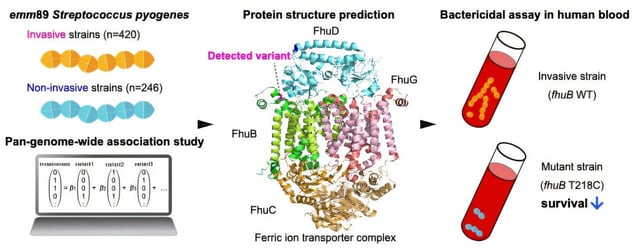Overview
- A pangenome-wide analysis of 666 global S. pyogenes genomes by Osaka University researchers identified a mutation in a ferric ion transporter exclusive to Japanese isolates.
- Laboratory tests showed the mutation impairs bacterial growth in human blood, uncovering a novel mechanism behind invasive infections.
- The study found that many genes once blamed for severity are common in milder strains, suggesting virulence can also arise through loss of inhibitory genes.
- This Japan-specific mutation provides a precise target for developing next-generation antimicrobials and preventive strategies against life-threatening strep.
- Published in eLife in July 2025, the research highlights the utility of large-scale genomic studies for decoding complex bacterial pathogenicity.
